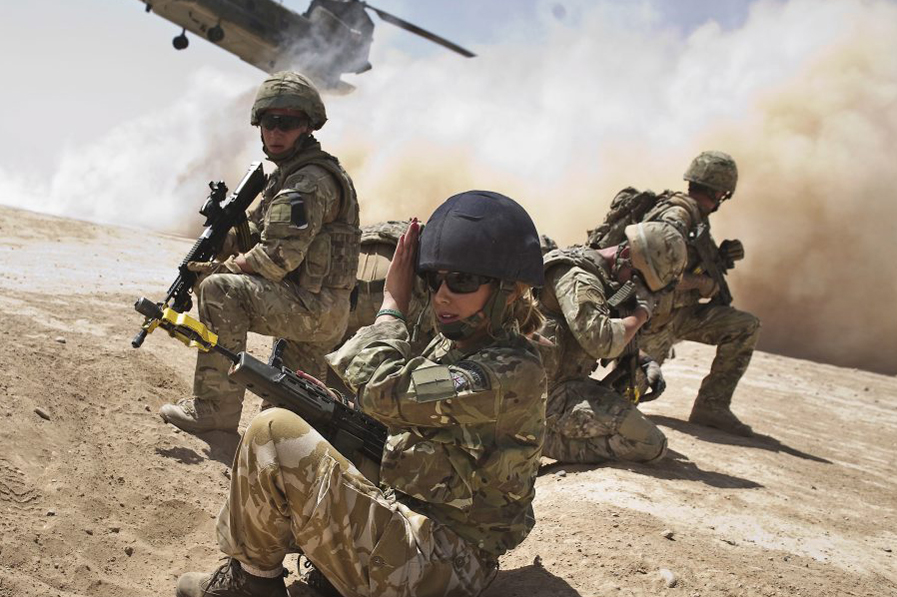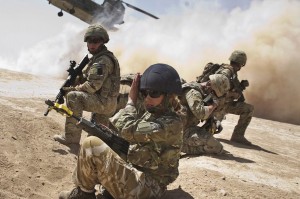The War on Terror can’t be Won


With the French intervening in Mali, it’s an odd coincidence that the infamous ‘surrender monkeys’ putting boots on the ground to fight violent Islamist groups. This kind of intervention is a typical part of the international War on Terror.
Radical Islamist groups have seized much of Mali’s north in an explicit attempt to implement Sharia Law, and the French armed forces are attempting to stabilize the region. Even quelling the rebellion would be a pretty optimistic goal for the French. In all likelihood, they’ll achieve some token victory, further break down governmental authority, encourage the spread of radical groups in Africa and ultimately force the problem underground to emerge stronger later.
The War on Terror is almost the worst type of conflict for first-world militaries to participate in. Military doctrine had focused for years on the threat of other major nations and fairly conventional warfare and the asymmetrical nature of fighting insurgents is anathema to what the military now expects to do. Most armed forces are focused on overwhelming force that is delivered through aircraft, drones and other long-range weapons.
Military strategy has focused on advancing technologies, integrating military branches and increasing battlefield control and coordination. The first world has been gearing up to fight another world war since the last one ended. An AC-130U gunship costs $190 million per unit, leaving alone the immense cost of ammunition and fuel. Numbers from the Centre for
Strategic and Budgetary Assessments 2011 reports indicate that an American soldier sent to Afghanistan costs about $1.1 million, and one to Iraq approximately one million.
For a soldier going to Afghanistan, this is actually a decrease. In 2007, one soldier going to Afghanistan cost about $1.6 million. By contrast, how much can a single insurgent cost? Reliable numbers are obviously hard to come by, but common sense should tell us enough.
Much of the cost of an American soldier comes from fuel and transportation. This is irrelevant in most cases for an insurgency, as fighters are usually from the area or nearby countries. Advanced communications and control equipment drives the cost of one soldier way up, and though it certainly lowers their operational effectiveness, insurgents spend little on this. Aside from moral and humanitarian concerns, and the economic, political and international effects, the War on Terror is simply an unwinnable war.
A military solution is not the way for the west to confront international terrorism. Indeed, it was a military solution that started the conflict.
Osama bin Laden’s words have been twisted and misrepresented to provide political points for several years now, but his original grievances were not about America’s immorality or the need for its total destruction. His most concrete and consistent demands have always concerned the American occupation of Saudi Arabia and support of Israel.
It’s true that meeting these demands would probably not stop the most radical of the Islamic terror movement. But these concrete violations have always been the most successful recruiting tool of terrorist organizations. Raving about the immorality of America might convince a few to go to war, but for most insurgents, the driving force behind their violence has been poverty and the obvious actions of the west.
Several studies of captured terrorists have borne this out—most are radicalized by pictures of degraded Muslims in Guantanamo Bay and occupation forces in Saudi Arabia than anger about America’s societal corruption.
The very way the west has been fighting the War on Terror has made the problem infinitely worse. Bombed-out villages and murdered civilians are not just tragic and unnecessary, they are creating the enemy whom they are trying to destroy. The best thing the west can do is live up to the ideals they are trying to promote abroad. Respect for human rights, individual liberty and responsible government have made more friends than occupations and bombs ever have and ever will.
The Arab Spring disproved the old notion that non-Europeans were simply incapable of achieving democracy on their own. Thousands of people demonstrated against corrupt governments, most of them supported tacitly or openly by the west, and brought them down. It’s clear that we don’t need to introduce democracy around the world from the barrel of a gun, instead we need to set a responsible example.
The French in Mali might win in a shallow sense, but the intervention of a justly despised former colonial power is not going to make the west look charitable or benevolent. Ultimately, warfare seems to do more harm than good—who would have figured that?
letters@thecord.ca


